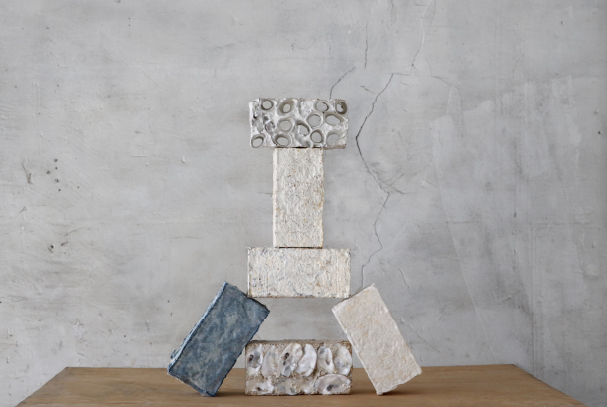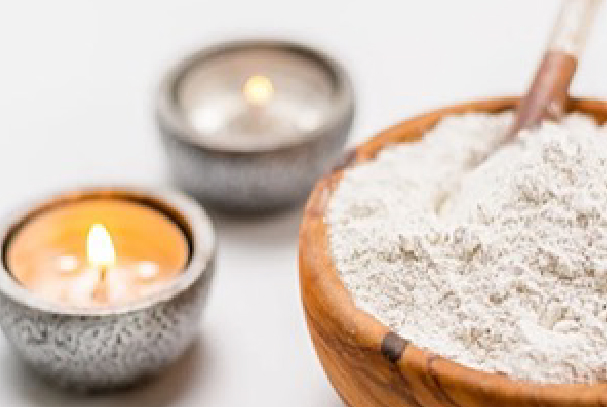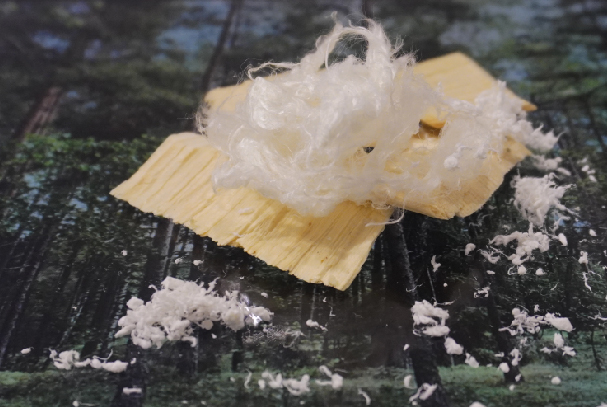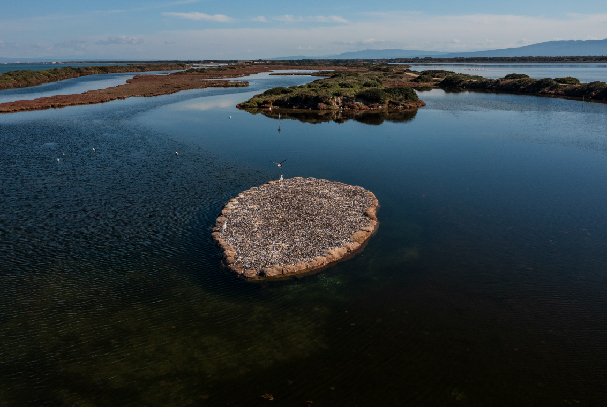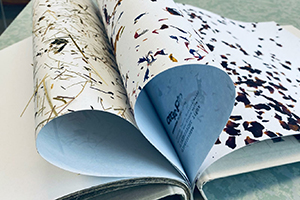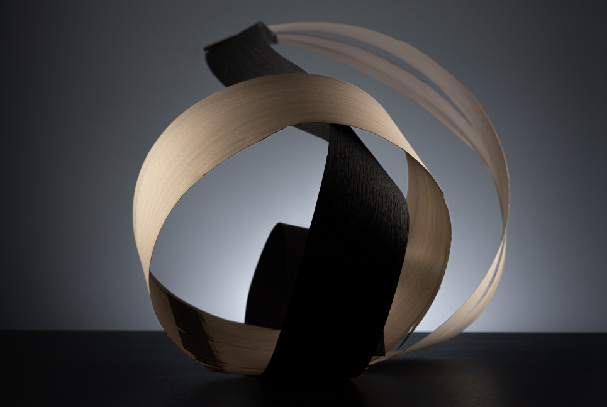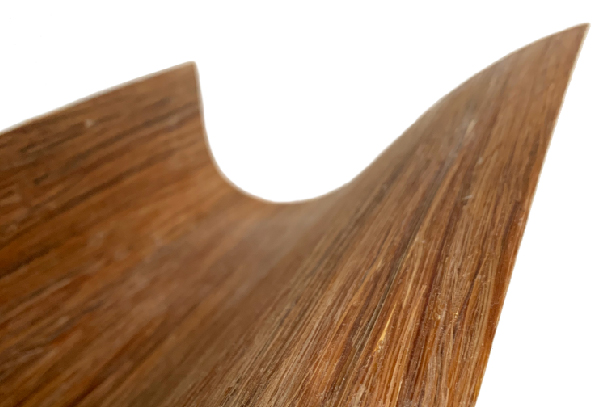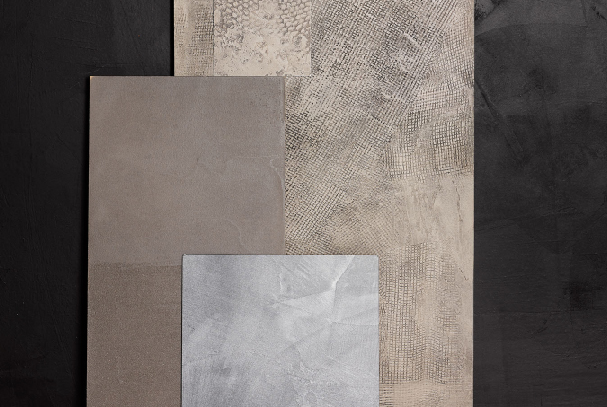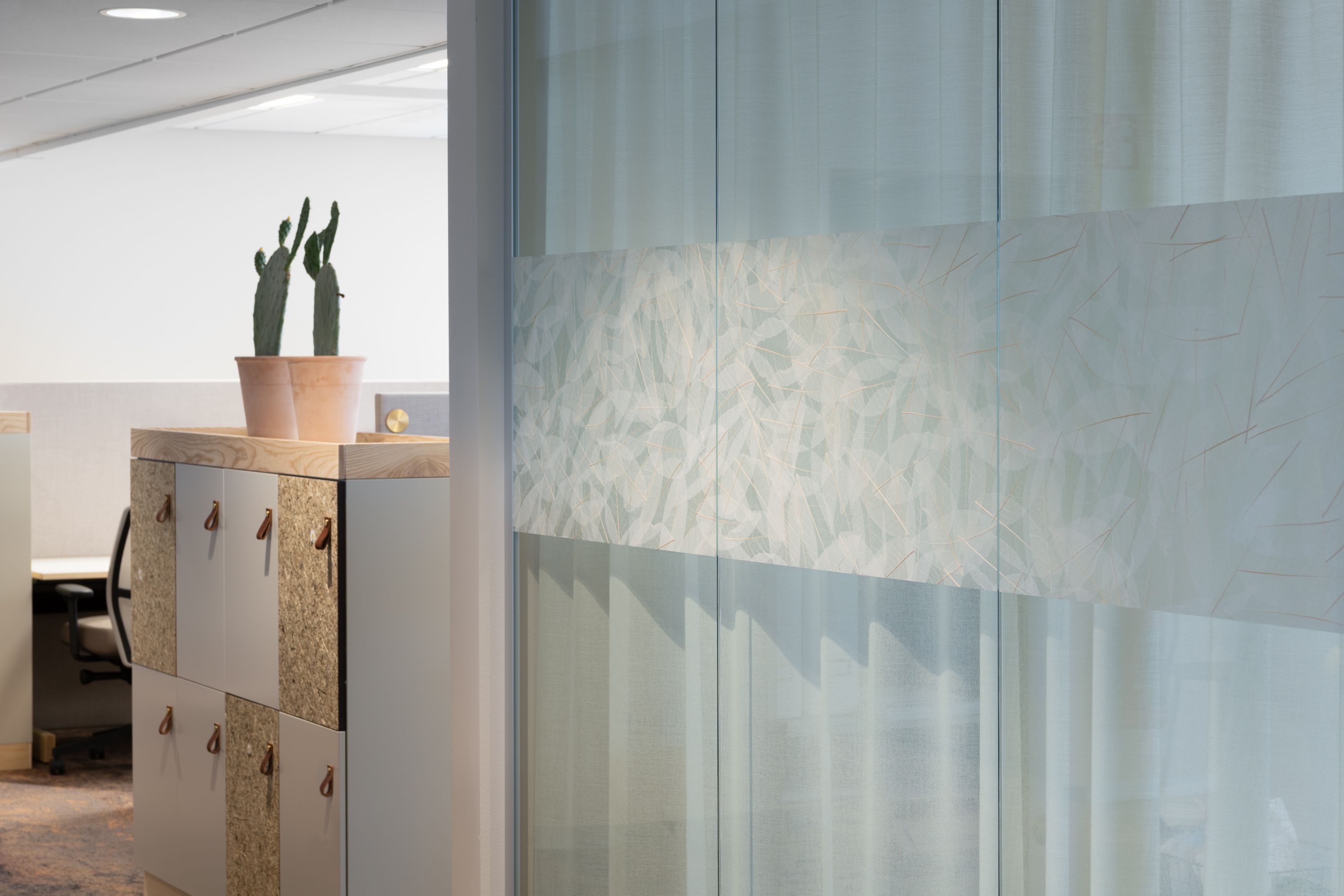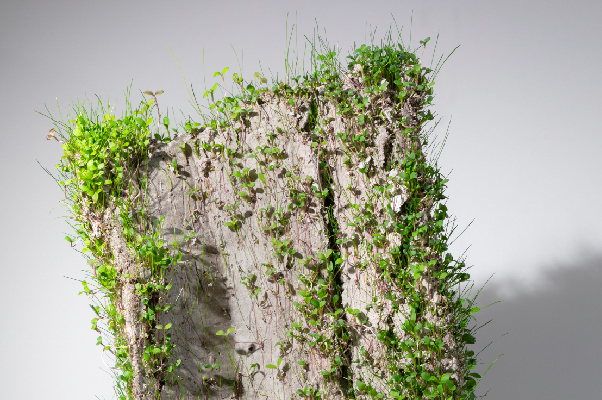- About
- Services
If you look for materials
If you produce materials
- Shop
- Milan Design Week
- News
- Contact us
Exhibitors
Aléa
‘Back to dirt - a bio-inclusive process with mycelium’ is a transdisciplinary research project, which proposes a more integrated myco-fabrication process. Myco-fabrication utilizes the growth of mycelium, the root structure of fungi, to create materials from organic waste. Back to dirt explores this process by using local soil as a mold to grow objects. This unique process allows to bypass typical stages of myco-fabrication - such as sterilization, or the consumption of additional energy and plastic molds - while exploring mycelia’s ability to regenerate soils and reintroduce biodiversity. In 2021 Miriam Josi and Stella Lee Prowse grew the first full-scale outcome of their experimentation: an underground myco-fabricated chair, presented at Domaine de Boisbuchet.
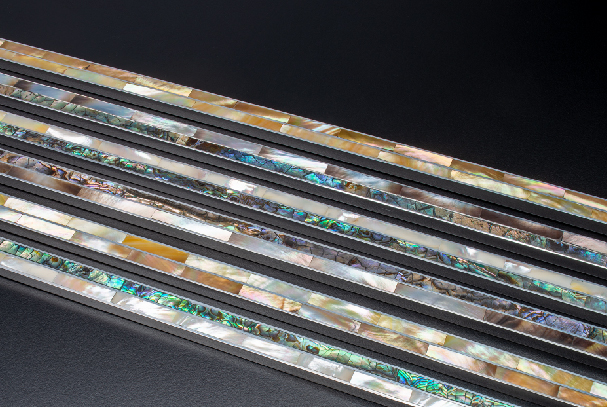
ARKIMIA
Arkimia carries out a careful selection of the most beautiful cultivable seashells and stones from the Philippines, masterfully combining them with woods, metals, and colored resins, using ancient techniques of local craftsmanship. The application sectors range from fashion accessories to packaging, from furnishing accessories to interior design, to custom motorcycles and cars and the yachting sector – all applications achieved with no limits of hybridization of materials and approaches. All raw materials and processes are certified and sustainable, and a part of the profit is donated to the Bien Unido fishing cooperative of the island of Bohol, a trusted partner in shell harvesting, to support their economy and help them in the implementation of breeding, and environment-friendly fishing systems.
Bella Mademoiselle
The Amazonian rainforest is one of the world’s greatest oxygen basins, as well as one of the richest places in terms of botanical diversity. Its naturalistic beauty is at the base of Bella Mademoiselle’s skincare and make-up production, inspired by the passionate vision of Andrea Peixoto, from Brazil. Andrea developed her spa grade collection during Covid-19 lockdown, with a strong focus on sustainability, manifested both in her respectful approach toward natural resources, as well as in the care for people involved in the supply chain. The ingredients utilised in her cosmetics come from extractive communities throughout Brazil. The production process, completed in Italy, enables to connect the Brazilian biodiversity with thousands of consumers worldwide, contributing directly to local development and environmental preservation.
GRETE
The “GRETE - Green Chemicals and Technologies for the Wood-to-Textile Value Chain” project is an exemplary case of the research and innovation activities supported by the European Commission, in order to reduce the environmental impact of the textile industry. The international collaboration has led to the definition of innovative technologies which produce man-made fibres from cellulose sources in a sustainable way, using a new raw material: wood pulp from European biorefineries; a new chemical component: ionic liquids (liquid salt at room temperature), to dissolve the pulp and spin artificial fibres; a new fibre: intrinsic properties of the material allowing to reduce water consumption in textile finishing processes.
www.greteproject.eu
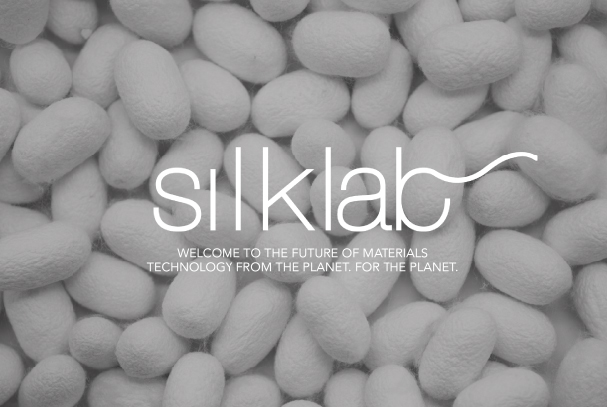
SILK LAB
Bombyx mori silk fibroin has become a ubiquitous material for applications, ranging from biomedical devices to optics, electronics, and sensing, while also manifesting promising performance in the food supply chain, and in architecture and design-related applications. Its widespread use arises from its unique properties, including biocompatibility, edibility, implantability, resorbability, and sustainability. Silklab researchers reverse the process of silk production, by starting from silk cocoons, to obtain a silk solution that constitute the base of materials that are simultaneously “technological” (e.g., mechanically robust, micro- and nanostructured, high-performing) and “biological” (e.g., living, adaptable, bio-functional), making them ideal for applications at the interface between these domains.
www.silklab.com
Nieddittas
Nieddittas, the company managing the entire mussel farming chain in the Gulf of Oristano, and MEDSEA, a non-profit institution for the protection and sustainable development of coastal ecosystems, partnered up to establish the Blue Eco Lab, a workshop dedicated to eco-design creations, which make use of waste materials derived from the mussel farming chain. The slats of the bench presented at Vivarium, are made from processed pallets used for fish products, while the bases are made with a cement compound that incorporates ground mussels shells, and scraps from the Orosei marble quarries. A second project involves the repurposing of mussel shells for the construction of artificial islets near the protected area of the Corru Mannu pond for the settlement and nesting of bird species.
www.nieddittas.it
Studio ByColor
As you know, when all pigments are mixed together, they generate black. Therefore, if you combine red, blue, and yellow paint, you get black, right? There are many black foods in Japan, all of which have been celebrated since ancient times because they are rich in nutrients. Nori (seaweed) used for sushi and rice balls is one such example. Containing many nutrients such as red algae, green algae, and cyanobacteria, nori is known to be the ‘blackest’. The blacker it is, the better it tastes. STUDIO BYCOLOR is a design studio whose name and core values are based on colours and materials. We capture the deep and beautiful black color of NORI and break it down as a color material.
www.studiobycolor.com
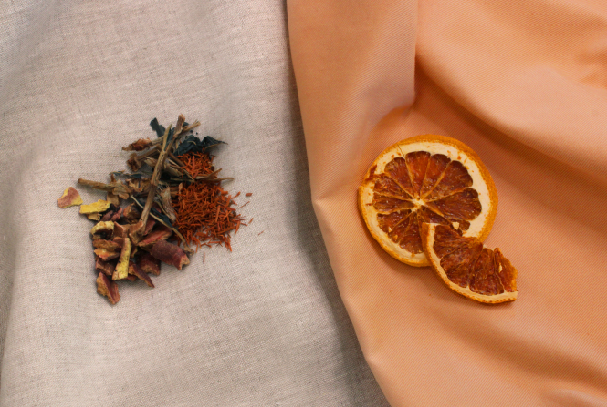
Tessuti di Sondrio
Tessuti di Sondrio’s collection Heart to Earth, stems out of the company’s earnest approach to sustainability, and includes numerous projects in steady development. The first, made in collaboration with the innovative company Orange Fiber, introduces a new way of obtaining coloured fibers from orange waste, and resulting in fabrics that are silky, shiny, precious, innovative, sustainable, and Made in Italy. Herbarium Tincturae is a new collection of fabrics based on dying techniques made with herbs - ivy, tannin, Asian wood, poppy, camping, pomegranate and others. It is a true philosophy of life, and a radical shift from the usual industrial approach. The organic fabrics are skillfully dyed with an ancient decoction technique, using only non-edible parts and scraps.
www.tessutidisondrio.it
Zanuso Legno
Vivarium will present StoneOak®, alongside a Limited Edition made of the rare StoneElm, MarbleAsh and Medullary - millenary wood veneers produced in high thickness, and literally extracted from the heart of the Earth, where they sank five thousand years ago. These are extraordinary and evocative woods, as they embody history, beauty, and the patient work of nature - all of which are celebrated by a sustainable approach. The recovery of buried plants, and their traditional processing performed by experts, is able to give new life and energy to this ultra-natural material, characterised by magnificent shades of colours and textures. The result is an aesthetic and exclusive collection, dedicated to architects, designers, and companies that want to experiment with these rare and precious materials.
www.zanusolegno.com
Bambooder
Bambooder has developed a patented technology to mechanically extract bamboo fibers and produce semi-finished products for high-performance composite applications. Bambooder’s main product is a technical yarn, made of long bamboo fibers (12-50cm) utilised in continuous fiber 3D printing, UD tapes, or textiles. All sidestreams are used to make short fibers suitable for non-woven mats, injection moulding compounds, or 3D printing filaments. Bambooder’s products are comparable to steel, aluminium, carbon, glass, and other natural fibres, according to the required properties. Bamboo has the advantages of being light, strong, and long-lasting. Bamboo's rapid growth not only results in higher CO2 uptake compared to other plants, but also in significantly higher fibre yield than other natural fibres.
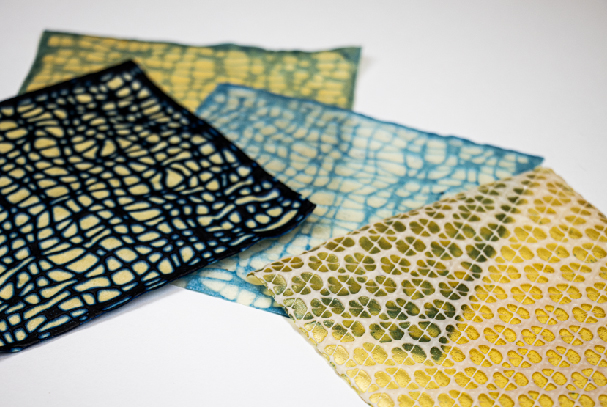
Dumolab
DumoLab Research at Penn University is directed by interdisciplinary architect Dr. Laia Mogas-Soldevila and develops materials and architectures that nurture both the human body and planet Earth using ambient-conditions manufacturing and environmentally interactive bio-composites. From DumoLab 2021-2023 research results Vivarium will display materials ranging from biodegradable stiff leather-like material developed from shrimp shells, to inks derived from silk protein, to digitally structured 2.5D printed bioplastic sheet combining both flexible and stiff biomaterials, to wood-like additively manufactured lattice developed from cellulose pulps and biomaterial binders.
www.dumolab.com
Oltremateria
The heat of the beating sun, the movement of the waves, the rubbing of oystershells and seashells, all generate natural sands and conglomerations of organic and certified recycling. A new surface material is thus born, “A mare” - characterised by a light, three-dimensional materiality, and offering multiple applications, ranging from continuous flooring, to interior finishings, to food-safe surfaces, thanks to its HACCP certificate. "A mare" is made with innovative polymers derived from renewable sources such as sunflower oil, composed of 60% seashells from certified recycling. With its low VOC emission, it can be implemented in CAM projects, making it a material of great interest for LEED projects.
ORGANOID® BY PIVA
Organoid Surfaces are made with simple raw materials such as hay, flowers and leaves harvested in the Austrian Region of Tyrol - combined with natural glue coming from food-waste and held together by Flax and special papers. The result is a 100% green product with a multi-sensitive surface, offering a unique combination of optical, tactile and olfactory perception - literally introducing Nature at home.
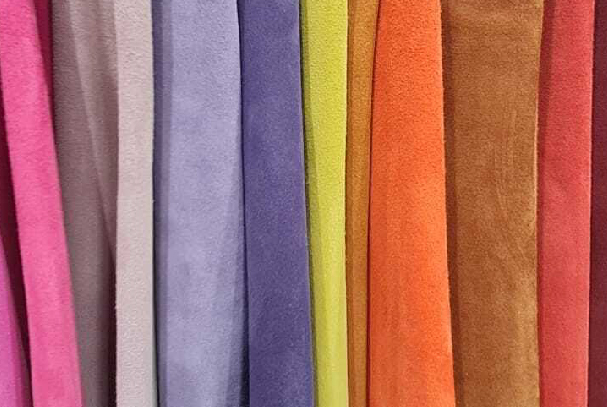
CONCERIA NUVOLARI SOCIETÀ BENEFIT
Nature-l® is a line of leathers produced by Conceria Nuvolari Società Benefit Srl, and is used for the production of footwear, leather goods and clothing. Created with a proprietary know-how tanning process, Nature-l® is a certified chrome-free material, with a reduced heavy metal content, as well as being biodegradable, compostable, and carbon neutral. This innovative leather is a by-product of the food industry. The tanning method used in its production reduces water consumption, compared to the traditional process, as well as reducing the use of heavy metals (toxic and allergenic), and promoting the absorption of colours, minimising their waste. Furthermore, a bigger quantity of leather surface is processed, which means less waste, less disposal costs, less pollution, without altering the quality of the final product.
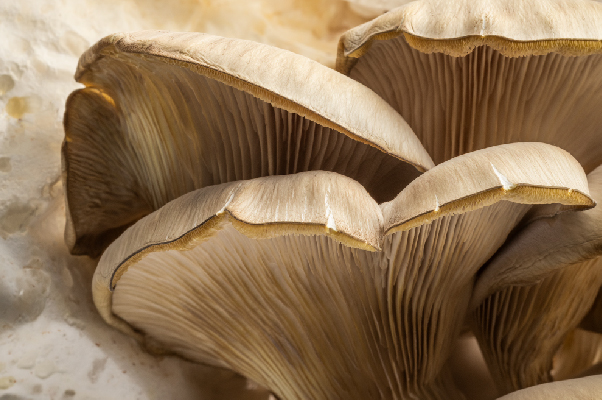
MOGU
Mogu is a design company that manufactures sustainable and innovative products with strong aesthetic value and advanced performance. Starting from residue materials, it offers products based on mycelium, samples of which are on display at Vivarium. Aware that 40% of cotton yarns is waste and that 80% of hemp production is made up of hemp shives, Mogu uses cotton residues and hemp hives as nutrients for mycelium, which feed on the organic matter and convert the low-value input material into a product. To ensure flexibility and strength in Floor Flex, Mogu adds a polyol from renewable sources such as rapeseed, sunflower or castor oil. As the fishing industry and global warming cause an unused accumulation of mussel shells on beaches, Mogu recovers them and adds them to the Floor product, ensuring a unique aesthetic effect.
Martina Taranto
Viral Nature is material research proposing a bioreceptive material able to host and support life. Fertile and easy to shape, Viral Nature can be employed to cast complex structures made to grow into living botanical sculptures. The material, embedded with plant seeds, can be ‘programmed’ to hold or kick off the process of vegetal growth. It detains humidity, maintaining the seeds sufficiently moist and absorbs water through capillarity. The formula of the composite mix is highly adaptable with elements local to a specific geographical zone to be biocompatible to the ecological contextual features. Español (España) Italiano (Italia) English (UK) MATERIALLY logo white Copyright © 2021 Materially S.r.l. Impresa Sociale P. Iva/C.F. 10972870967, REA: MI 2569802, Cap. Soc. 10.000€ Sede legale e operativa: viale Sarca, 336, Ed. 16 - 20126 Milano (Italy) info@materially.eu | T (+39) 02 8689 1720 | F (+39) 02 3655 3238

